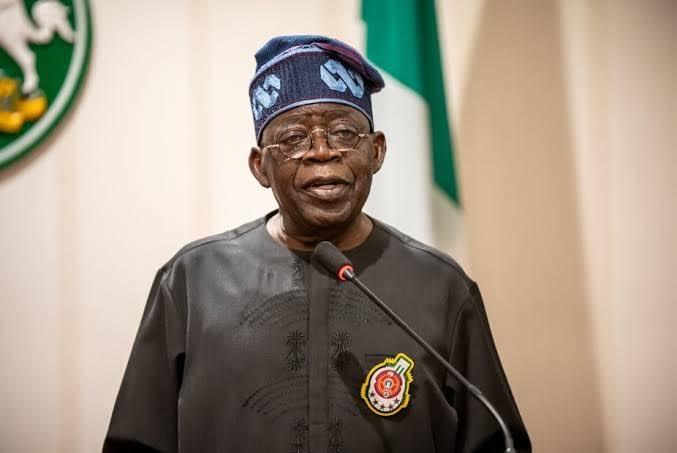Nigerians have begun to react to the caliber of individuals contained in President Bola Tinubu’s recent presidential pardon list.
The list published on the official website of the state house included convicted drug lords, murderers, and other serious offenders among its 175 beneficiaries.
Recall that Tinubu’s presidential pardon list was officially unveiled and approved by the Council of State on October 9, 2025.
The pardons, recommended by the Presidential Advisory Committee on the Prerogative of Mercy and chaired by Attorney-General Lateef Fagbemi, encompass a wide range of cases—from posthumous honors for historical figures like nationalist Sir Herbert Macaulay and environmental activist Ken Saro-Wiwa to clemency for current inmates showing remorse and good conduct.
However, the full list was made known to the public on Saturday, October 11, 2025.
The names contained in Tinubu’s presidential pardon have divided public opinion, with critics decrying it as a dangerous erosion of justice and supporters hailing it as a compassionate step toward rehabilitation and historical reconciliation.
Tinubu’s Presidential Pardons by Crime Category
• Drug-related offences: 70 individuals (40%)
• Illegal mining offences: 60 individuals (34%)
• Financial/white-collar crimes: 30 individuals (17%)
• Violent/capital offences: 25 individuals (14%)
• Property hijacking/maritime: 10 individuals (6%)
• Arms-related offences: 6 individuals (3%)
• Human trafficking/exploitation: 4 individuals (2%)
• Other: 3 individuals (2%)
Names of some of the convicted individuals
Pan-Atlantic Kompass reports some of the names in Tinubu’s presidential pardon list that have been generating reactions.
Maryam Sanda
Maryam Sanda, the woman sentenced to death in 2020 for killing her husband, Bilyaminu Bello, son of former PDP National Chairman, Haliru Bello, in 2017, is among those recently pardoned by President Bola Ahmed Tinubu.
Her case was one of Nigeria’s most talked-about domestic violence cases.
Sanda, aged 37, was sentenced to death by hanging after the court found her guilty of culpable homicide for stabbing her husband during a domestic dispute in their Abuja home in November 2017.
According to the statement released by Bayo Onanuga, Presidential spokesman, she had spent about six years and eight months at the Suleja Medium Security Custodial Centre before being considered for mercy.
Kelvin Ibruvwe Oniarah
Also included in Tinubu’s presidential pardon list is a notorious kidnap kingpin Kelvin Oniarah, also known as Kelvin Ibruvwe or Kelvin Oniarah Ezigbe.
Oniarah is the man responsible for the 2013 kidnapping of constitutional lawyer Mike Ozekhome (SAN) and the murder of Chude Nwike, former Deputy Governor of Anambra State.
Records show that Oniarah was sentenced in October 2023 to 20 years imprisonment for kidnapping, to take effect from 2013 — when he was first arrested.
His sentence was later reduced to 13 years for showing “remorsefulness” and participating in rehabilitation programmes, including studies at the National Open University of Nigeria (NOUN).
Kelvin, once one of Nigeria’s most feared kidnappers, led a brutal gang that terrorised parts of Delta and Anambra States during the height of Nigeria’s kidnapping epidemic.
His arrest in 2013 had been celebrated as a major victory for security forces — making his sudden release under Tinubu’s government even more alarming to many Nigerians.
Major Suleiman Alabi Akubo
In 2008, a military court found Major Suleiman Alabi Akubo guilty of betraying the Nigerian military. He was convicted of stealing over 7,000 weapons from the Nigerian Army, weapons meant for the nation’s defense, and selling them to militants who turned them on his own comrades. Soldiers died.
Farouk Lawan
A former Nigerian lawmaker, Farouk Lawan was convicted in 2021 for corrupt practices. He had served his sentence and was among those pardoned by President Tinubu as part of the 175 convicts granted mercy.
Professor Magaji Garba
Convicted in recent years for obtaining money under false pretences, Professor Magaji Garba had already served part of his sentence.
He is among the living convicts whose sentence was commuted or forgiven under the prerogative of mercy.
Tinubu’s Aide Rejects Pardon List
In a surprising turn of events, Tinubu’s spokesman in the South-East, Denge. Josef Onoh has differed on the pardon granted to some convicts.
This is as Onoh appealed to the president to cancel the pardon given to Maryam Sanda and some others, such as the drug dealers, whose sentences were ameliorated.
Onoh contended that it was morally wrong and a rape of justice that may undermine the Tinubu administration’s international reputation if such a category of capital offenders is just granted pardon for the sake of the prerogative of mercy.
Onoh stated: “This act, while constitutionally permissible, contravenes the moral imperatives of retributive justice and restorative equity, inflicts psychological trauma on victims’ families, perpetuates systemic injustice, and erodes the foundational deterrence mechanisms essential for societal stability.
“Similarly, absolving drug dealers like Chibueze, whose trafficking perpetuates cycles of addiction, community devastation, and organized crime, signals a moral abdication that normalizes predation on society’s most fragile members, including the youth ensnared in narcotics webs.
“Nationally, this portrays Nigeria as a haven for impunity, tarnishing its image as Africa’s largest democracy and deterring foreign investment in a nation already grappling with reputational deficits from corruption indices such as Transparency International’s 2024 score of 25/100.
“Internationally, it undermines diplomatic credibility: bodies like the UN Office on Drugs and Crime, which lauded Nigeria’s anti-narcotics strides, may now view the administration as complicit in recidivism, eroding alliances in global counter-trafficking pacts like the UN Convention Against Illicit Traffic in Narcotic Drugs (1988), to which Nigeria is a signatory.
“For the upcoming generation youth comprising 70 percent of Nigeria’s 220 million population, per World Bank data, this criminally shapes psyches toward cynicism and criminality. Social learning theory (Bandura, 1977) posits that observing unpunished elite crimes fosters normalized deviance, potentially spiking youth involvement in drugs (already at 14.4% prevalence per UNODC 2023) and violence, sabotaging the demographic dividend essential for Vision 2050.”





